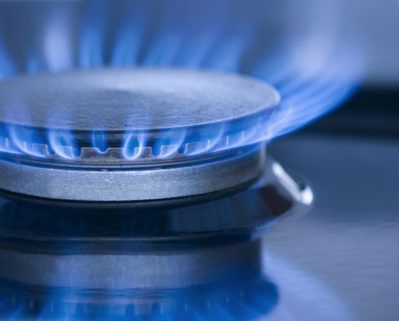
A new report out this week has revealed that small and medium-sized businesses (SMEs) in England, Scotland and Wales currently waste over £1.7 billion* a year by not switching their gas supplier.
According to the ‘Flogas Business Energy Report 2016’, the businesses, which are likely to include restaurants, warehouses, offices, manufacturing companies and public sector buildings currently spend £7.1 billion* a year on gas for their heating and manufacturing processes, a huge 24.4% more than they need to.
This means that an SME that spends £10,000 a year on gas could be saving an average of £2,400, equivalent to £200 every month by switching supplier.
However, despite the obvious savings that could be made, the report found that 32% of businesses weren’t aware of the savings that could be made by switching, and almost 23% thought it would be too time-consuming or complicated.
Perhaps worse still, is the lethargy around switching. One in ten business owners said they couldn’t be bothered to switch, and 13%, actually want to switch but haven’t got round to doing it.
| Reason for not switching | Percentage of Businesses |
| Didn’t know we could save, or how much we could save | 32% |
| Thought it would be too time-consuming or complicated | 23% |
| Couldn’t be bothered | Nine per cent |
| Didn’t realise we could switch | Three per cent |
| Want to switch, but haven’t got round to it | 13% |
| Been with the same company for years | 19% |
Broken down regionally, businesses in the north west of England were wasting the most money, followed by those in Yorkshire and Humberside, and London, who each cumulatively waste more than SMEs in the whole of Scotland.
| Region | Total SME spend on gas | Potential saving by switching gas supplier |
| North West | £992,408,167 | £242,386,417 |
| Yorks and Humbs | £863,198,333 | £210,744,833 |
| London | £807,238,000 | £197,632,000 |
| Scotland | £774,832,333 | £189,239,833 |
| South East | £710,520,500 | £174,010,250 |
| West Midlands | £655,620,833 | £160,200,083 |
| East of England | £598,973,667 | £146,386,167 |
| East Midlands | £534,310,500 | £130,565,250 |
| South West | £442,328,500 | £108,180,250 |
| Wales | £351,014,833 | £85,733,083 |
| North East | £314,704,167 | £76,896,417 |
| Unallocated | £59,016,667 | £14,418,667 |
With a constant need to increase profits, businesses are under ever-growing pressure to reduce costs, and energy bills can be one of the best ways to do this. In fact, the ‘Flogas Business Energy Report 2016’ found that over half of businesses questioned, named reducing energy costs as the number one way to reduce overheads.
Commenting on the findings, Pete Ablett, commercial director, said: “Many businesses don’t realise they are literally throwing money away by not switching.
“We find the most common reasons that businesses don’t switch are a lack of awareness that there is a cheaper alternative, or because they are under the misconception that switching is complicated. By sharing these figures we hope to wake people up to the money they could be saving.
“We know that we can save businesses around 24% a year, especially if they haven’t changed their supplier recently, and switching to Flogas is so simple. Just tell us you want to switch, and we’ll do everything else, including telling your old supplier.”
The study also looked into the common non-monetary problems that businesses have with their energy suppliers, and the results were interesting. A quarter of those questioned complained about international call centres, while almost three out of ten were unhappy about sitting on hold for too long. Billing was also an area where businesses had issues, with 36% not understanding their bills or pricing structure.
| Most common non-monetary complaints | Percentage of businesses |
| International call centres | 24% |
| Spending too long on hold when trying to call them | 28% |
| Not understanding bills | 17% |
| Not understanding pricing structure | 19% |
| Unhelpful call centres | 14% |
| Hidden costs or nasty surprises | 18% |
| No help in forecasting gas usage | 15% |
| Bad customer service | 15% |
Source: Flogas Business Energy Report 2016
